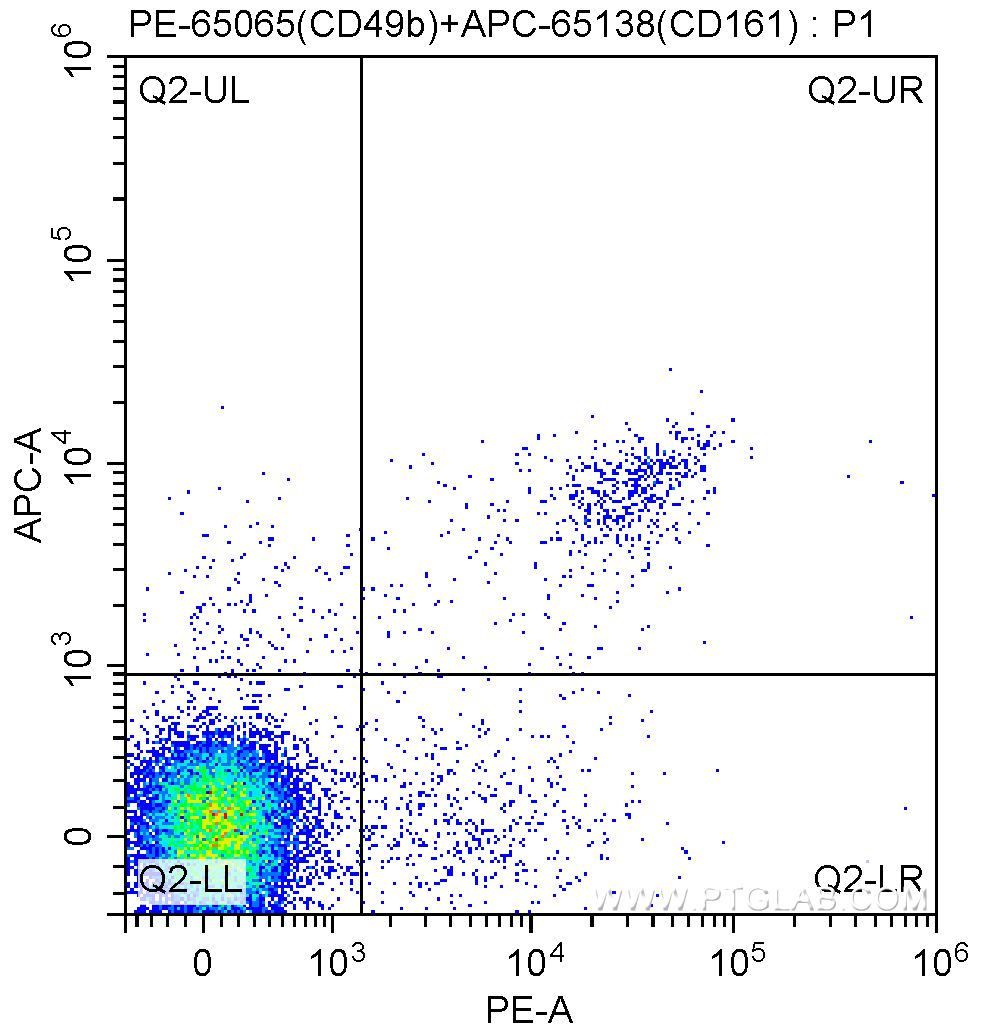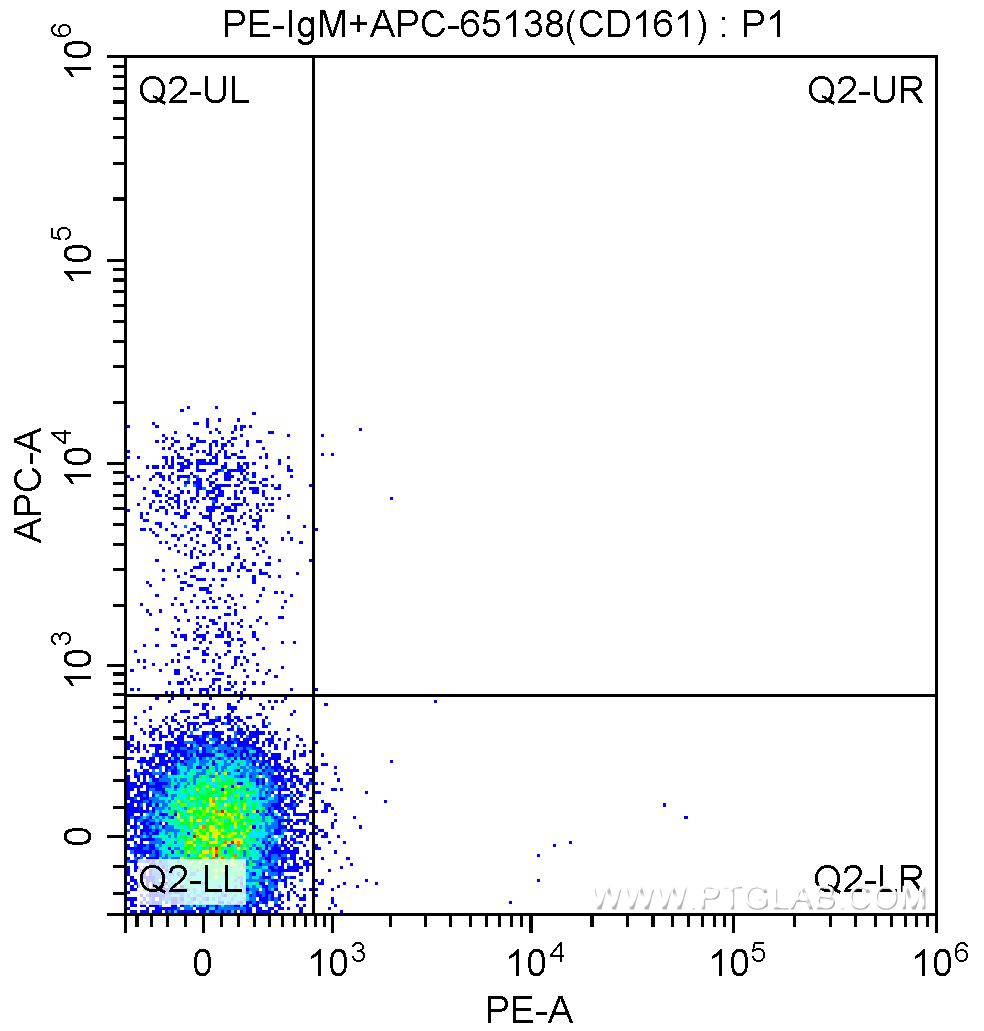验证数据展示
经过测试的应用
| Positive FC detected in | mouse splenocytes |
推荐稀释比
| 应用 | 推荐稀释比 |
|---|---|
| Flow Cytometry (FC) | FC : 0.2 ug per 10^6 cells in 100 μl suspension |
| This reagent has been tested for flow cytometric analysis. It is recommended that this reagent should be titrated in each testing system to obtain optimal results. | |
| Sample-dependent, Check data in validation data gallery. | |
产品信息
PE-65065 targets CD49b in FC applications and shows reactivity with mouse samples.
| 经测试应用 | FC Application Description |
| 经测试反应性 | mouse |
| 免疫原 |
NK cells isolated from C57BL/6 mice 种属同源性预测 |
| 宿主/亚型 | Rat / IgM, kappa |
| 抗体类别 | Monoclonal |
| 产品类型 | Antibody |
| 全称 | integrin alpha 2 |
| 别名 | Itga2, integrin alpha 2, DX5 |
| GenBank蛋白编号 | BC065139 |
| 基因名称 | CD49b |
| Gene ID (NCBI) | 16398 |
| RRID | AB_2883862 |
| 偶联类型 | PE Fluorescent Dye |
| 最大激发/发射波长 | 496 nm, 565 nm / 578 nm |
| 形式 | Liquid |
| 纯化方式 | Affinity purification |
| UNIPROT ID | Q62469 |
| 储存缓冲液 | PBS with 0.1% sodium azide and a stabilizer, pH 7.3. |
| 储存条件 | Store at 2-8°C. Avoid exposure to light. Stable for one year after shipment. |
背景介绍
Integrins are a large family of α/β transmembrane receptors playing a key role in cell-cell interactions and cell adhesion to the extracellular matrix (PMID: 30374344). CD49b, also known as integrin alpha-2, is a 150 kDa transmembrane glycoprotein expressed on a wide variety of cell types including platelets, megakaryocytes, NK cells, NKT cells, neutrophils, and long-term activated T cells (PMID: 18802064; 2415516). Integrin alpha-2/beta-1 (also known as VLA-2) is a receptor for laminin, collagen, collagen C-propeptides, fibronectin and E-cadherin (PMID: 2557634). It is responsible for adhesion of platelets and other cells to collagens, modulation of collagen and collagenase gene expression, force generation and organization of newly synthesized extracellular matrix.
实验方案
| Product Specific Protocols | |
|---|---|
| FC protocol for PE CD49b antibody PE-65065 | Download protocol |
| Standard Protocols | |
|---|---|
| Click here to view our Standard Protocols |



